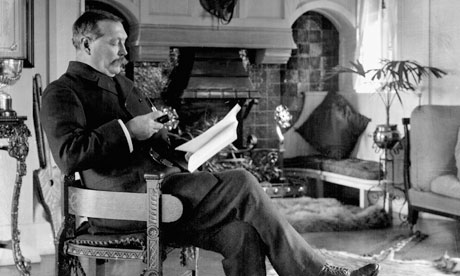
The literary canon, supposedly, is a monolithic entity, serenely permanent against the merely voguish and faddish. Looking through the Penguin Press catalogue for July to December, I was struck by their relaunch of the Penguin English Library – which shows just how permeable and fluctuating the canon actually is.
The distinctively orange-spined Penguin English Library first appeared in 1963, "planned in all respects to take its place alongside the Penguin Classics" – which then was reserved for work in translation. Its aim was to be "a comprehensive range of the literary masterpieces which have appeared in the English language since the 15th century". As an avid collector of them, I have never quite managed to shake the idea that if a work wasn't in the Penguin English Library (or the Classics, or the Modern Classics, or the American Library) then it probably wasn't much good.
There is, of course, a great deal of crossover between the original 1960s list and the 100 titles Penguin will publish this year – the "Great Tradition" of FR Leavis still hangs over the whole endeavour. But the differences are more significant.
One of the first in the new series, Bram Stoker's Dracula, wasn't considered for the original at all. It seems to be part of a trend for recognising literary merit in ostensibly "genre" fiction. Stoker is joined by HG Wells, Arthur Conan Doyle and the Victorian "sensation novelist" Mary Elizabeth Braddon. There is a pronounced bent towards the gothic, with James Hogg's The Private Memoirs and Confessions of a Justified Sinner, Charles Maturin's Melmoth the Wanderer and Matthew Lewis's The Monk all being honoured as classics. By contrast, the original 1963 list included "Three Gothic Novels" – Frankenstein, The Castle of Otranto and Vathek – bundled together as if they were insufficiently serious to be read on their own.
All of the first 100 books in the new Penguin English Library are novels, but the original list was equally open to non-fiction. Nor was it just selections from the great essayists, including William Hazlitt, Thomas de Quincey and Samuel Johnson. Works such as Thomas Malthus's An Essay on the Principle of Population, Gilbert White's The Natural History of Selborne and Edmund Burke's Reflections on the Revolution in France were deemed works of literature as much as of philosophy or science. The English Library was an empowering phenomenon; with one foot in the old belles-lettres tradition (I still rather hanker for the days when every gentleman's library was considered incomplete without Motley's The Rise of the Dutch Republic and Stanley's Lectures on the History of the Eastern Church) and the other in the Open University curriculum.
The biggest loser in the new series is a book that has never been out of print, and was once almost universally known: John Bunyan's The Pilgrim's Progress. It was the fourth of the 1963 publications (after Wuthering Heights, Middlemarch and Great Expectations) – and it isn't even in the first 100 of the new series. There are far more "difficult" literary texts in the new 100, and given the preponderance of Trollope, it doesn't seem as if there's an allergy to church, rather than religious, literature. I am rather at a loss to explain its omission, although it is noticeable that the new Penguin English Library only begins in the 18th century, and is somewhat scant even in it: no Rasselas, or The Vicar of Wakefield, or any of those novelists like Robert Bage, Ann Radcliffe and Henry Mackenzie who graced the grandfather of this project, Ballantyne's Novelist's Library). Certainly it is odd not to have The Pilgrim's Progress but to have a novel whose title is derived from it – Vanity Fair.
Overall, the 2012 English Library so far is less keen on fact, more keen on fantasy. Is this a fair reflection of our contemporary state of letters?

